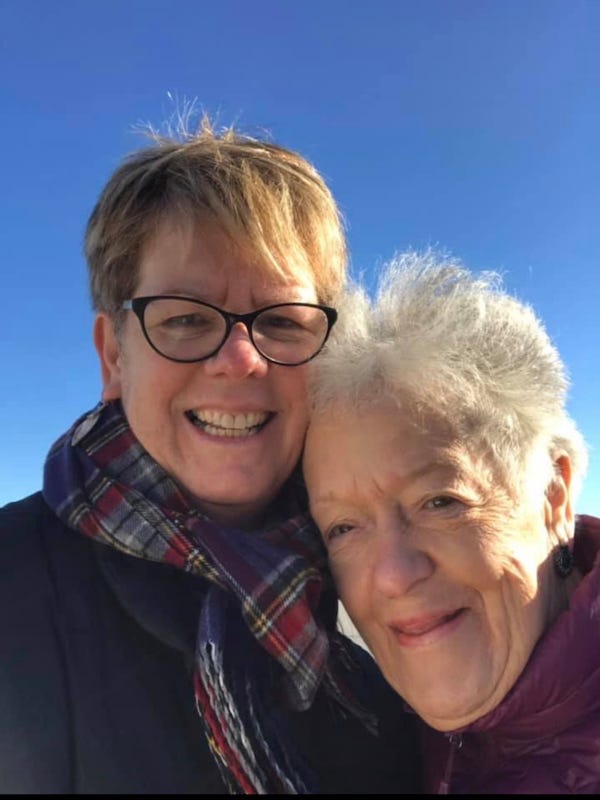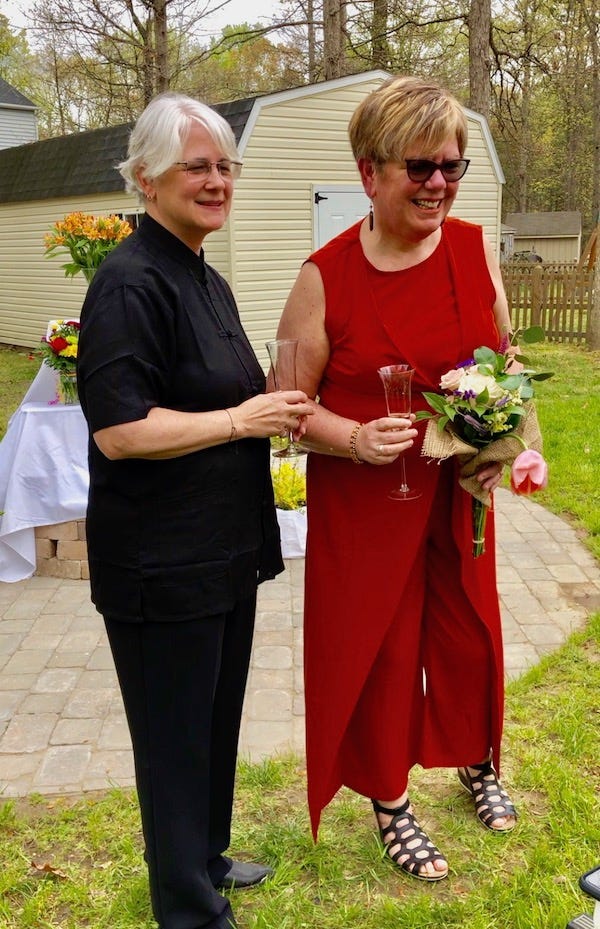On waiting — and moving forward — in a pandemic.
“Experience tells me the world is not always a safe place, and yet — “
I know there should be a holiness in waiting. In learning to be still, to learn the lesson that we are not in control. This is, after all, what advent is all about. We wait and wait for the promise that is Christmas, for the rebirth.
I send my students outside with their journals to observe the earth. I tell them, there are other ways to learn besides books. What can you learn from the grass, the trees, the stars? What do any of them have to tell us?

They are restless, these young people, who are used to screens, to action, to constant noise in their ears. Just twenty minutes, I tell them. Sit and look and listen. Then write about it. Tell me all that you’ve learned. They do this every other week for the entire year, and their entries grow more thoughtful and reflective. Skeptics at first, they end up all loving this exercise.
But what I don’t tell them is how I, too, am restless. That even twenty minutes of not knowing is hard. Maybe we’re not wired for limbo, for purgatory, the neither here nor there. Or maybe it is the other way around and the not knowing is exactly how we are, how we should be.
There is both certainty and uncertainty in nature. Change is constant. Re-birth. New growth. That the sun will rise and set is certain; This is how we go on. I want my students to see this lesson, to get it. I want to tell them: nothing is certain.
Except this. And this.
Even now, the waiting is a struggle. I love being home, love a lot about these endless days, their sameness, even their quiet. There is Cindy. My cat. The garden. In the evening, there is the fire pit. There are books, And food and wine. Even a kind of settling in.
The journaling has not prepared my students for this, though. I encourage them to keep it up. Go outside, I tell them. Sit again in your journaling spot. Breathe in the air. There is still spring. There is still rebirth.

I want to believe it, too. I want to believe we’ll all make it through — me, Cindy, my students. I want to believe that my mother — alone and lonely in her place, isolated because she has the virus, confused and angry, will have the strength to hang on. What does waiting feel like when you’re eighty-six and not remembering? Where does her mind wander? She reports on the weather outside her window, the squirrel who is there or not there, the kittens she imagines in her room. Her life is an endless waiting these days and this, I’m afraid, will not lead to rebirth. At least not the one she is hoping for — a reunion with her husband, a new start together in a new home.
In my despair, I think we cannot count on much. Experience tells me the world is not always a safe place, and yet—
Cindy and I decide we will wait no longer, that pandemic or not, we will get married. We say our vows in the backyard, with two friends, our officiant, and her wife, in front of many friends and family on Zoom. It is not the backyard wedding we had hoped for, not the wood-fire pizza truck caterer, not the mingling of people from various parts of our lives, not the festive gathering we had been planning. Still, in that moment there is joy. There is hope.
To see my mother now, her tiny life, what it all has come to, what dreams have ended there in her room, her one chair, the TV she cannot remember how to turn on, the husband who cannot take care of her, what now is there to wait for?
*****************************************
Patricia (Patty) Smith is the author of the novel The Year of Needy Girls, (Kaylie Jones Books), a 2018 Lambda Literary Award finalist. Her nonfiction has appeared most recently in Hippocampus and is forthcoming or has appeared in Makeout Creek, Broad Street, Salon, Prime Number, Gris Gris, Heart and Humanity Magazine and Parhelion Literary Review. In addition, her work appears in several anthologies including Something to Declare: Good Lesbian Travel Writing, (Gillian Kendall, ed.) One Teacher in Ten: LGBTQ Educators Share Their Stories, One Teacher in Ten in the New Millennium: LGBTQ Educators Speak Out About What’s Gotten Better…and What Hasn’t (Kevin Jennings, ed), and Older Queer Voices: The Intimacy of Survival (Sarah Einstein & Sandra Lambert, eds). A native New Englander, she lives in Chester, VA with her wife and teaches Creative Writing and American Literature at the Appomattox Regional Governor’s School in Petersburg, VA. Her essay “Holy War: Ramadan and Race Riots in Senegal,” which appeared in Broad Street Magazine, received a Special Mention by Pushcart.








